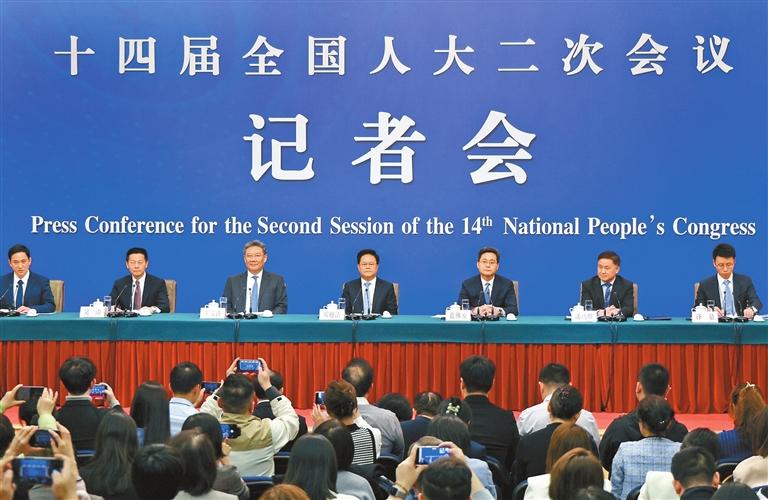
IT is estimated that China’s move to promote a new round of large-scale equipment renewals will create an enormous market worth more than 5 trillion yuan (about US$704 billion), Zheng Shanjie, head of the National Development and Reform Commission, told reporters yesterday. With further advancement of high-quality development in China, the demand for equipment renewals will only get stronger, Wang, head of the country’s top economic planner, said at a press conference held on the sidelines of the ongoing session of the national legislature yesterday. The Chinese Government recently approved an action plan to promote large-scale equipment renewals and trade-ins of consumer goods. “Talking about consumer goods, at the end of last year, the number of cars for civilian use in China reached 336 million, and the number of household appliances in major categories such as refrigerators, washing machines, and air conditioners exceeded 3 billion units. Therefore, the upgrade of consumer goods such as automobiles and home appliances is also expected to create a trillion-yuan market,” Zheng said. China has the confidence, capabilities, and conditions to meet the economic and social development targets for this year, he said. China’s plan to issue ultra long-term special government bonds, starting from 2024 and over the next few years, will help shore up the investment and consumption and lay the foundation for long-term high-quality development, he said. The funds raised through these bonds will mainly support areas such as scientific and technological innovation, integrated urban-rural development, coordinated regional development, food and energy security, and high-quality development of the population. Monetary policy China has a rich toolbox of monetary policy and there is still ample policy headroom, Pan Gongsheng, governor of the People’s Bank of China, said at the conference. “We will pay more attention to striking a balance between the short term and the long term, between seeking steady growth and preventing risks, and between internal equilibrium and external equilibrium in our monetary policy regulation,” Pan said. The average reserve requirement ratio (RRR) of China’s banking industry — the proportion of money that lenders must hold as reserves — is currently 7% and has room for further decline, Pan said. The overall financing cost will be further lowered and the central bank will also set up a relending facility to support technological innovation and transformation and continue to adopt a relending facility to support carbon emission reductions. Fiscal policy China will appropriately enhance the intensity of proactive fiscal policy and improve the quality and effectiveness of its fiscal policy, Minister of Finance Lan Fo’an told the conference. Work will be done to appropriately expand fiscal expenditure to ensure sufficient funding for major national strategic tasks, markedly increase government bonds to promote social investment, and continue structural tax and fee reduction policies with priority given to supporting scientific and technological innovation and the development of the manufacturing sector, Lan said. Governments at all levels must ensure that fiscal funds are used where they are needed most and to the best effect. Stock markets Protecting the legitimate rights and interests of investors, especially small and medium-sized investors, is the most important core task in the work of the China Securities Regulatory Commission (CSRC), Wu Qing, chairman of the CSRC, China’s top securities regulator, said. Openness, fairness, and justice are the utmost principles of the market, which regulators should pay particular concern to, he said. Policymakers won’t hesitate to take resolute measures to correct market failures and forestall systemic risks if the capital market experiences extreme volatility, said Wu. Resolute actions must be taken to correct market failures in extreme situations like irrational volatility, liquidity drain, market panic, and serious loss of confidence. Foreign trade China is seeing positive signs in exports and imports despite a challenging global trade environment, Commerce Minister Wang Wentao said at the conference. The country has seen a boom in trade activities during the Spring Festival period, a traditional slack season for imports and exports, Wang said. Wang said the trade recovery that started in September 2023 is expected to continue, despite a possible dip in March due to a high comparison base. (Xinhua) | 
